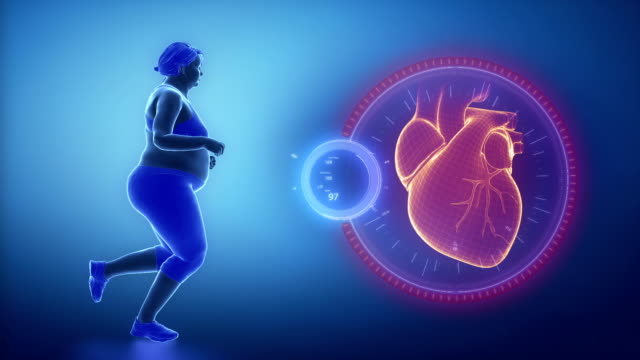The Hidden Factors: Exploring the causes of Belly Fat
Introduction
And all my hatred for those useless efforts made to eliminate that nasty stomach’s fat. At a certain period we become fed up of looking at those bulges on our bellies and we query, “What is this”? Most of us have this part of our bodies that are uncomfortable and tedious. Why do you carry excessive belly fat? It’s time to lose weight and become more active.

What Causes Belly Fat?
Therefore, let us first understand what the belly fat entails before venturing into its causes. Abdominal fat usually called visceral fat is an obese accumulated in the belly. It is not only the pinchable subcutaneous fat under your skin, but rather the invisible fat wrapped around your viscera such as liver and pancreas. This is why if may be termed as more troubling to your health.
let’s get to the bottom of what’s causing that pesky belly fat:
1. Poor Diet:
An unhealthy diet contributes greatly to some obesity and belly fats. Taking more calories than needed especially from the sugar based food products will make you have extra weight that will accumulate in your stomach. Examples of such diets include those rich in refined carbohydrates and sugary drinks.
2. Lack of Exercise:
The accumulation of belly fat is primarily a result of a sedentary lifestyle. Your body burns few calories after not being involved in regular exercise, making the extra calories turn into fat within one’s belly.
3. Stress:
Belly fat has a cunning opponent in stress. Cortisol is a hormone which promotes the accumulation of the fat with regard to abdominal region. Cortisol is released into one’s body when someone experiences high level stress. Essentially, a hectic life could just mean additional bulges on your tummy. into extra inches around your waist.
4. Genetics:
Where your body stores fat is also determined by your genetics. Certain genetic determinants make other individuals prone to gaining more fat in the region of their abdomen. However, there are some things that you can do differently to offset this risk. to mitigate this.
5. Lack of Sleep:
Depletion of sleep messes balanced with hunger hormones that increase tendency for food craving as well as obesity. Besides, it may also result to higher belly fats.
6. Menopause (for Women):
Hormonal changes during menopause in females could result into accumulation of belly fat. Changes in this hormone, for instance, can cause fat to accumulate abdominally.
7. Excessive Alcohol Consumption:
Taking a drink often may also lead to belly fat. The consumption of excessive calories leads to weight gain which is why the excess fat usually settles in the stomach region.
8. Age:
Our metabolism slows down as we get older and that makes it easy for us to pile up weight but mostly in the abdomen part. Therefore, staying fit as one ages remains imperative.
The Impact of Belly Fat on Your Health
And therefore its effects on health. Stomach fat, otherwise known as belly fat, should not be treated as a cosmetic problem. Here’s how it can affect you:

1. Increased Risk of Health Conditions:
Belly fat increases one’s chances of developing heart disease, type 2 diabetes, colorectal cancers among others.
2. Insulin Resistance:
It also increases the probability of insulin resistance, which precedes Type-II diabetes. Insulin resistance is when your body’s cells do not respond well to insulin therefore giving rise to elevated glucose levels.
3. Inflammation:
This forms visceral fat which is metabolically active and produces many inflammatory substances hence leading to chronic inflammation of the body. The inflammation is linked to many health issues.
4. High Blood Pressure:
Belly fat is linked to hypertension, one of the major causes of strokes and cardiac diseases.
5. Reduced Lung Function:
Additional fat in the abdomen may limit the diaphragm’s ability to expand, compromising lung functionality and causing breathing difficulties.
6. Fatty Liver Disease:
Additional fat in the abdomen may limit the diaphragm’s ability to expand, compromising lung functionality and causing breathing difficulties.
7. Sleep Apnea:
Sleep apnea is a condition associated with belly fat, which interrupts breathing while sleeping.
How to Say Goodbye to Belly Fat
Now that we’ve tackled the causes and effects of belly fat, it’s time to discuss how to bid it farewell and embark on a journey to a healthier you:
1. Eat a Balanced Diet:
Shift your focus towards healthy eating full of whole foods such as fruits, veggies, clean proteins and whole grain foods. Reduce consumption of sugared and processed foods.
2. Get Active:
Incorporate regular physical activity into your routine. Aim for a mix of cardiovascular exercises, strength training, and flexibility exercises to boost your metabolism and burn calories.
3. Manage Stress:
Learn how to effectively deal with stress, for instance through meditating, practicing yoga or using other relaxation methods. Lowering cortisol levels through reducing stress could help reduce belly fat.
4. Prioritize Sleep:
Make sleep a priority by establishing a regular sleep schedule. Aim for 7-9 hours of quality sleep each night to support weight management.
5. Limit Alcohol:
It is important for you to have regular medical check-ups and address any emerging problems earlier.
6. Hormone Balance (for Women):
Women experiencing menopausal changes should consider consulting a healthcare provider to discuss hormonal therapy or other options to manage changes in body composition.
7. Regular Check-Ups:
Consistency is key. Leading a healthy life is a lifetime venture. Choose realistic targets, show determination, persist, and do not give in.
8. Stay Consistent:
Consistency is key. Leading a healthy life is a lifetime venture. Choose realistic targets, show determination, persist, and do not give in.
Final Thoughts
The first important thing is to understand why you have belly fat so as to take charge on the situation. Losing belly fat does not happen overnight, but in the end, it gives more than the usual feeling of being good looking. Eating well and exercising regularly lead to normal waist circumference and prolonged lifetime. And so here’s to the road towards a slimmer, healthier you without your stubborn belly buddies.
FAQs: causes of belly fat
1. How can I reduce my belly fat?
To reduce belly fat, focus on a combination of healthy eating and regular physical activity. Incorporate a balanced diet with whole foods, engage in cardiovascular exercises, strength training, and flexibility exercises. Managing stress, prioritizing sleep, and staying consistent with these habits are key to success.
2. What is the reason for a fat belly?
A fat belly can be attributed to various factors, including poor dietary choices, a sedentary lifestyle, genetic predisposition, hormonal changes (e.g., menopause), stress, lack of sleep, and excessive alcohol consumption.
3. What burns the most belly fat?
High-intensity exercises, such as interval training and circuit training, are effective for burning belly fat. Incorporating a combination of cardiovascular exercises, strength training, and core exercises can be particularly beneficial for targeting abdominal fat.
4. How to lose belly fat in 7 days?
Losing significant belly fat in just 7 days is not realistic or healthy. Rapid weight loss is not sustainable and can be detrimental to your health. Focus on gradual, sustainable changes in diet and exercise over time to achieve lasting results.
5. Can hot water reduce belly fat?
Hot water alone is not a magic solution for reducing belly fat. While drinking warm water can aid digestion and overall hydration, it is not a direct fat-burning remedy. A holistic approach, including a balanced diet and regular exercise, is more effective for fat loss.
6. How can I lose belly fat in 7 days naturally?
Achieving significant results in just 7 days is not recommended. Instead, adopt a long-term, natural approach to lose belly fat by making consistent lifestyle changes. Eat a balanced diet, engage in regular physical activity, manage stress, prioritize sleep, and avoid excessive alcohol consumption for sustainable results.


